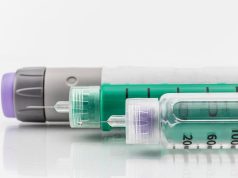For symptomatic, full-thickness cartilage defects of the knee in adult patients
WEDNESDAY, Dec. 14, 2016 (HealthDay News) — Maci (autologous cultured chondrocytes on porcine collagen membrane) has been approved by the U.S. Food and Drug Administration to repair symptomatic, full-thickness cartilage defects of the knee in adult patients.
Autologous cells are placed on a bio-resorbable porcine-derived membrane scaffolding that is surgically implanted over the area where damaged cartilage was removed. The membrane is designed to be absorbed by the body over time. Multiple implants can be used if there is more than one defect, the FDA said.
Maci’s safety and effectiveness were demonstrated during a two-year, 144-patient clinical study that compared the new product to an alternate surgical procedure. Potential side effects of Maci included joint pain, cold-like symptoms, headache, and back pain.
“Different cartilage defects require different treatments, so therapy must be tailored to the patient,” Celia Witten, Ph.D., M.D., deputy director of the FDA’s Center for Biologics Evaluation and Research, said in a statement. “The introduction of Maci provides surgeons with an additional option for treatment.”
Maci is produced by Vericel Corp., based in Cambridge, Mass.
Health News Copyright © 2016 HealthDay. All rights reserved.








